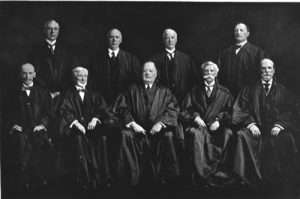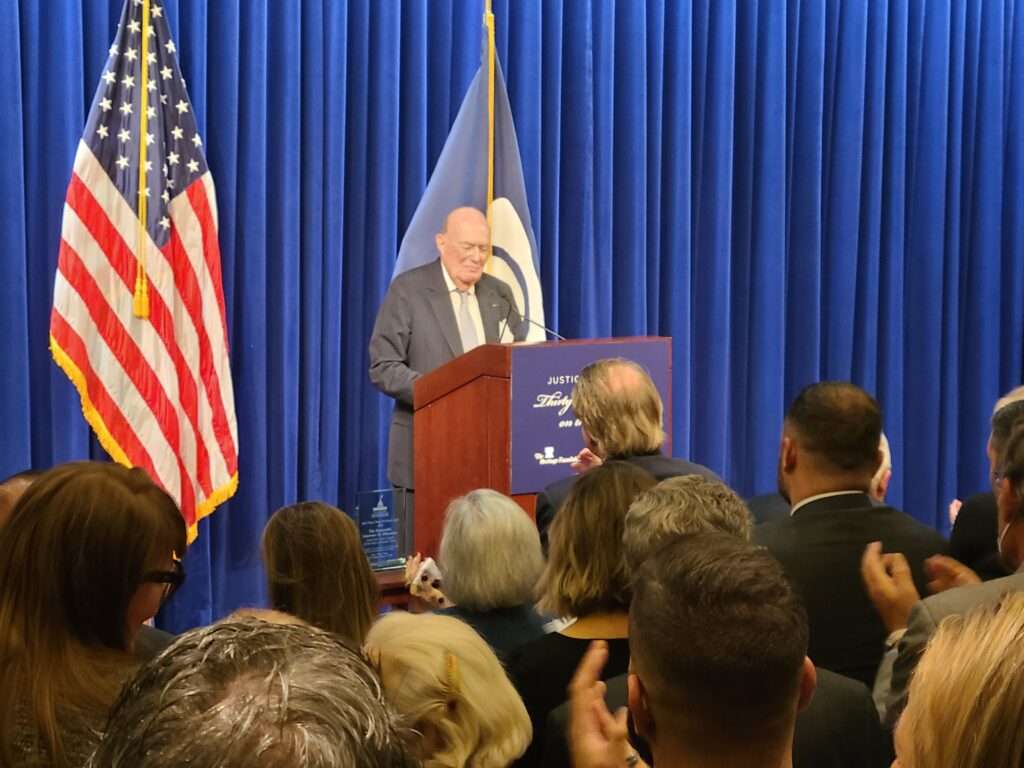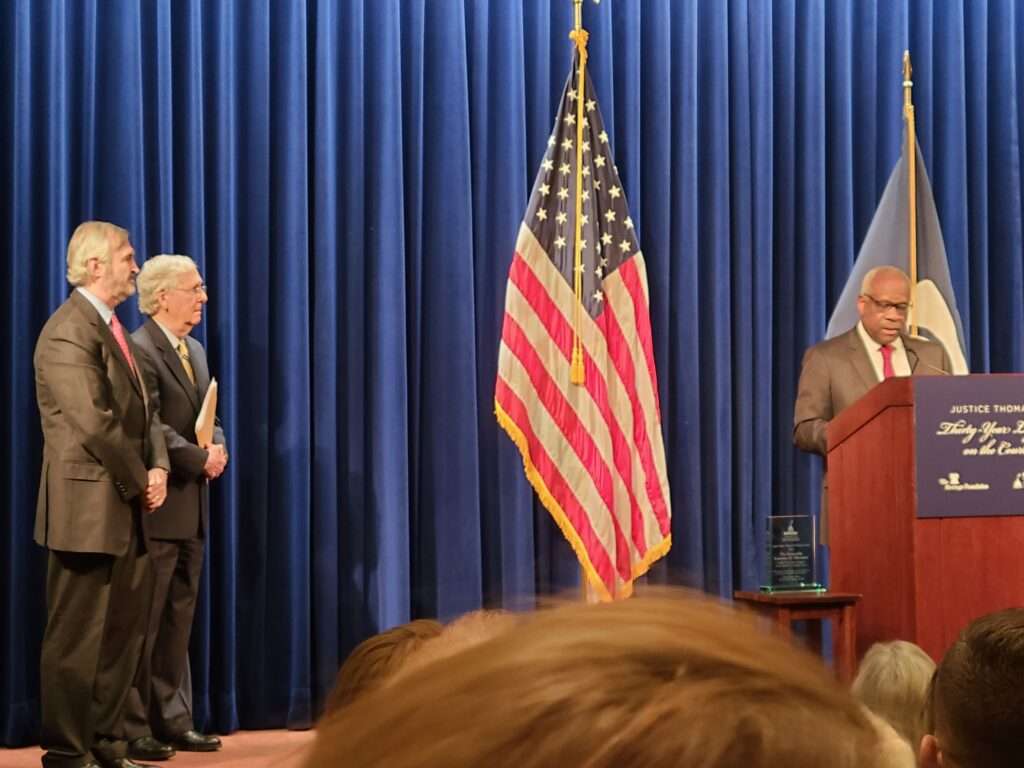
The 2014 killing of Eric Garner by a New York City police officer is an example of how enforcement of even petty laws (in this case, tobacco taxes) can be lethal. Peddling a few loose cigarettes in defiance of the government might carry a death sentence when cops impose the state’s will. So, why are Democrats pushing for higher cigarette taxes which will fuel an even larger black market and more confrontations with members of the public who seek relief from the government’s endless demands? That question demands an answer as New York City prepares for a new inquiry into Garner’s death.
“Millions of Americans who smoke could soon see an increase in their prices, as Democrats target tobacco and nicotine to help finance their $3.5 trillion economic package,” the Washington Post reported last month.
The hike would have an even bigger effect than supporters suggest, since it also elevates state tobacco taxes.
“When states tax tobacco products by price, the tax on the product will pyramid since the federal tax is levied at the manufacturer level and the state tax is levied at distribution level,” explains Ulrik Boesen for the Tax Foundation. “In effect, the state tax base includes the federal tax and becomes a tax on a tax.”
Proponents of the scheme hope it will raise $100 billion to fund the (thankfully) stalled big-government bill. But they also claim higher taxes will pressure nicotine fans to quit (and there goes that revenue!).
“The record is clear that there’s a stunning correlation between increased cigarette prices and reduced consumption over the decades, with federal and state tax hikes on tobacco playing a key role,” insists Marie Cocco, a health policy flack. She claims increasing the government’s take will “raise revenue, reduce tobacco use and, over time, holds the potential to save billions in health care costs.”
Maybe higher taxes do correlate with lower tobacco use. They definitely correlate with vigorous black markets patronized by customers looking for prices that haven’t been sent through the roof by the government’s appetite.
“In 2018, New York was the highest net importer of smuggled cigarettes, totaling 53.2 percent of total cigarette consumption in the state,” notes the Tax Foundation’s Boesen. “New York also has one of the highest state cigarette taxes ($4.35 per pack), not counting the additional local New York City cigarette tax ($1.50 per pack).”
Eric Garner was a New Yorker who had been arrested multiple times for engaging in the lucrative business of selling “loosies“—smuggled cigarettes peddled individually to people seeking relief from high taxes.
“The tax went up, and we started selling 10 times as much,” one illegal vendor told The New York Times in 2011 during the reign of notoriously intrusive Mayor Michael Bloomberg. “Bloomberg thinks he’s stopping people from smoking. He’s just turning them onto loosies.”
Eric Garner was killed by Officer Daniel Pantaleo using an illegal chokehold, but he was targeted because the cops thought he was engaged in his usual underground trade. While reporting in 2014 on protests against police brutality after Garner’s murder by police, the BBC acknowledged that “For some, however, another party bears some responsibility in Garner’s death—an out-of-control nanny-state government attempting to enforce a prohibition on the sale of untaxed cigarettes.”
Ultimately, all prohibitions, mandates, laws, and taxes are statements by lawmakers that here is an issue over which the government is willing to use violence to enforce compliance. That violence might be deployed to stop murderers, or it can be wielded in an effort to prevent people from selling loose cigarettes. Historically, high tobacco taxes have always resulted in a large number of people seeking to evade the law. Remember, more than half of the cigarettes sold in New York are smuggled; that means a tax hike inevitably increases the ranks of potential victims of state violence.
“On the opening day of law school, I always counsel my first-year students never to support a law they are not willing to kill to enforce,” Yale Law School’s Professor Stephen L. Carter wrote in 2014. “I wish this caution were only theoretical. It isn’t. Whatever your view on the refusal of a New York City grand jury to indict the police officer whose chokehold apparently led to the death of Eric Garner, it’s useful to remember the crime that Garner is alleged to have committed: He was selling individual cigarettes, or loosies, in violation of New York law.”
This caution can be applied to all sorts of state intrusions into people’s lives, of course. From drug laws to gun restrictions to zoning rules, government dictates are ultimately enforced by people employed to threaten, hurt, and even kill those who won’t comply. All sorts of mandates and prohibitions inflicted on society by lawmakers from both major political parties rely on the threat of force.
But high tobacco taxes are so closely linked to huge black markets that it’s impossible to pretend that the proposed tax hike in the spending bill won’t result in massive noncompliance. And that means more enforcement efforts and more conflict. So, why are congressional Democrats so committed to creating an unknown number of new Eric Garners by massively increasing tobacco excise taxes? That question can’t be ignored as New York City readies for an inquiry into Eric Garner’s death that will begin October 25.
“As you know, in 2019, Daniel Pantaleo was finally fired because of killing my son with a chokehold, and I’ve fought for five years for this to happen,” Gwen Carr, Garner’s mother, commented during a recent hearing. “This didn’t happen because of the police department or the de Blasio administration, it happened because I just fought tooth and nail.”
Maybe the inquiry will help to settle questions over the death of Eric Garner, though the record of law enforcement taking responsibility for its actions isn’t good. But lawmakers also need to take responsibility for what they want enforced.
Here is a hint as to how to avoid more Eric Garners in the future: Don’t keep driving people to the black market and creating confrontations with police by hiking taxes beyond the public’s willingness to pay.
from Latest – Reason.com https://ift.tt/3B7n19E
via IFTTT







